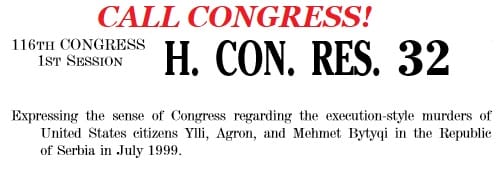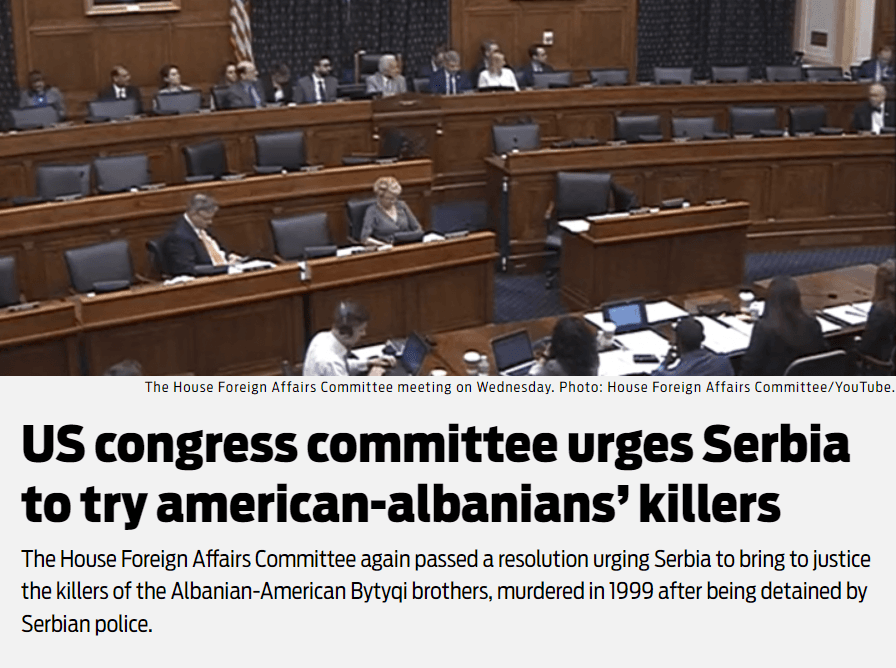On July 8, 2024, it marks a significant milestone of 25 years since the Bytyqi brothers were ‘released’ by the Court of Prokuple in Serbia, only to be tragically kidnapped again and forcibly disappeared on the same day by the Government of Serbia. This heartbreaking event highlights the ongoing struggle for justice and the painful reality of the criminal mentality that persists in Serbia, causing immense suffering for the Bytyqi family and the entire society for a quarter of a century.
In July 1999, and immediately after NATO’s attacks on the then Federal Republic of Yugoslavia ended and the Kumanovo Agreement was signed, they allegedly helped their neighbors – a Roma family from Prizren – return to Kraljevo, from where they escaped during the war. Due to the violation of the “Law on the movement and residence of foreigners” of the Republic of Serbia, they were arrested along the transit route between Kosovo and Serbia. They were sentenced to 15 days in prison. Twelve days later after an appeal, they were released. Their Serbian neighbor Miroslav waited to collect them, but the brothers were picked up by two men driving a white car with no license plates. They were sent to the training base of the Special Anti-Terrorist Unit. Two days later, they were killed with bullets shot to the back of the head and buried in a mass grave, which already contained the corpses of the killed Kosovars.
The Serbian authorities showed little interest in investigating cases where the Serbian police had acted during the war in Kosovo, but due to the fact that the brothers were American citizens and because of pressure from the US authorities, an investigation was initiated. The United States saw the killing of the Bytyqi brothers as a premeditated crime committed against its citizens; the American Federal Bureau of Investigation (FBI) launched an investigation while the US embassy in Belgrade carefully monitored the case. The main suspect was Vlastimir Djordjevic, head of the Public Security Department of the Ministry of Internal Affairs of Serbia (MUP) and assistant minister for internal affairs during the war in Kosovo. Djordjevic was the commander of the MUP forces in Kosovo in the early 1980s and one of the most trusted men of Yugoslav President Slobodan Milosevic. He was forced to retire in May 2001 when the refrigerated truck containing the bodies of Kosovo Albanians was discovered in the Danube near Kladovo. Before the investigation began, Djordjevic moved to Moscow, but was arrested in 2007 in Budva, Montenegro. In 2011, he was found guilty of war crimes against Kosovo Albanian civilians during the Kosovo War before the ICTY.
The Minister of Internal Affairs during the Kosovo War, Vlajko Stojiljkovic, who is suspected of having given the orders, committed suicide in 2002. The murder of the Bytyqi brothers is still being investigated by the War Crimes Court in Serbia. Two low-level police figures, who may have crossed the boundaries of crimes, Milosh Stojanovic and Sreten Popovic, were acquitted of all charges of aiding and abetting war crimes in March 2013 due to their marginal involvement in the killings of the Bytyqi brothers.
In February 2007, the police issued an order for Goran “Guri” Radosavljeviq after he failed to appear in court for the trial of Milosh Stojanoviq and Sreten Popoviq. Radosavljeviq was responsible for the training facility of SAJ, where the brothers were arrested, executed, and thrown into a mass grave.
Radosavljeviq testified in court, claiming that he was on vacation at the time of the arrest and execution of the Bytyqi brothers. Four other officers were arrested at the end of February 2007 as investigations continued into who exactly ordered and carried out the executions, including Milenko Arsenijeviq (SAJ Commander at the time) and three other police officers.None of them were ever charged. In March 2007, the US Embassy in Belgrade stated that the Department of Justice in the USA would continue its own investigations in accordance with American law.
In a court case in 2012 in Serbia, two men were found guilty of aiding in the death of their brothers, partly due to their marginal involvement in the crimes.
In 2013, the prosecutor’s appeal was denied with a verdict that upheld the acquittals.









